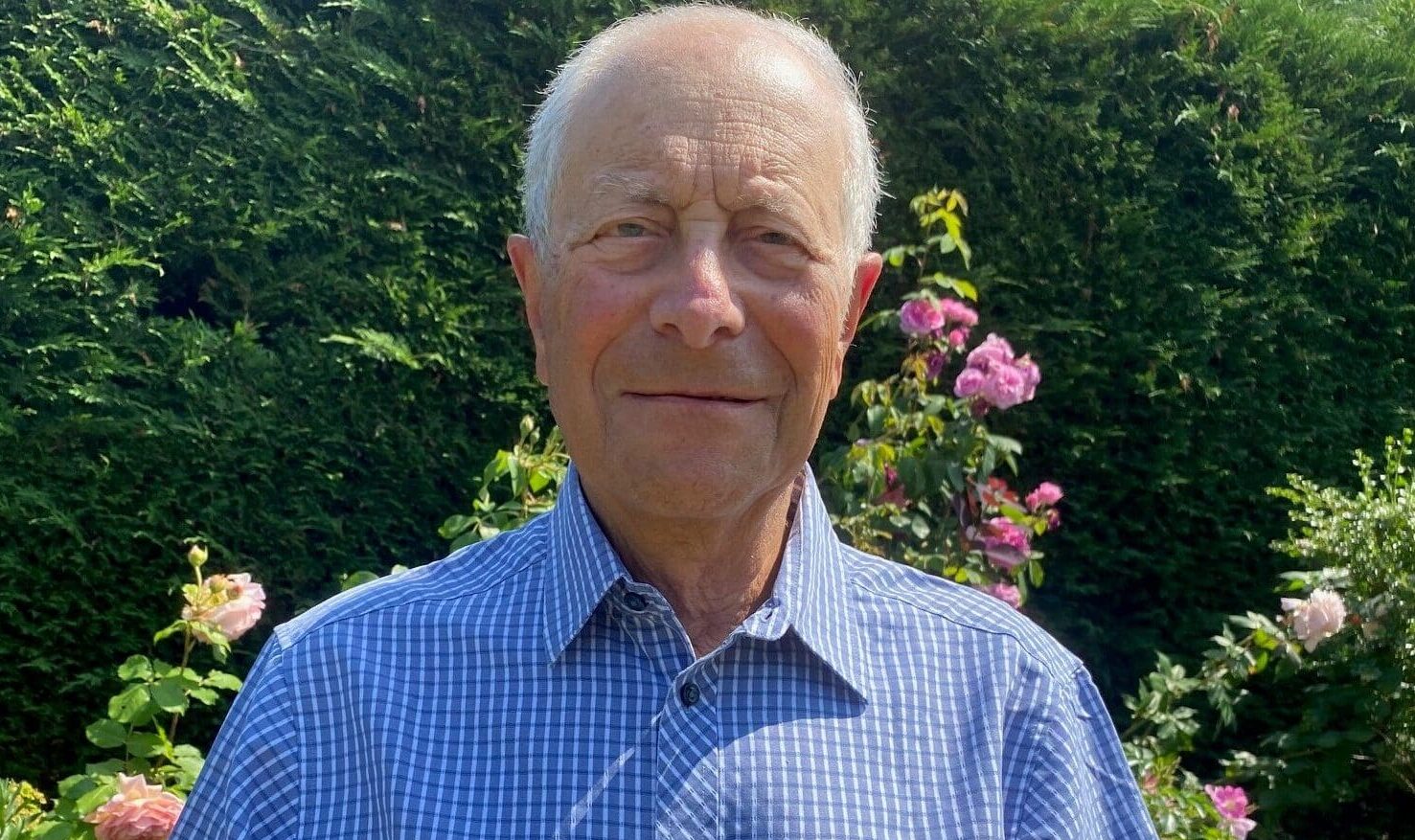“It’s just crazy that hospice care is funded by bike rides!” – Professor Stephen Spiro
Professor Stephen Spiro OBE was chair of the Board of Trustees of Rennie Grove for 10 years – from 2013 to 2023. He spearheaded the merger with Peace Hospice at a time of growth for the charity.
Under his leadership, finances of the already well-supported and much-loved Rennie Grove Hospice were reorganised and put onto a solid footing by a strategy of philanthropy and legacy fundraising, which he says, “took years, but I think it’s been really successful.”
“The merger means we can offer the best possible care… in people’s homes, in our Inpatient Unit, and across our outpatient services.”
Professor Spiro prides himself on being a team player and is adept at networking. He was keen to find new partners to expand patient services and reach more people in Hertfordshire and Buckinghamshire. The Peace Hospice was a willing partner and has proved a good fit. Stephen says, “The wonderful thing about the merger was that it was a merger of equals. The cultures might be a bit different, but you all get to like each other in the end. It means we can offer the best possible care to even more families in need: in people’s homes, in our Inpatient Unit, and across our outpatient services.”
“It’s just crazy that hospice care is funded by bike rides!”
Professor Spiro worries about the future of hospice care, with the sector facing the challenge of needing to do more with less money. Professor Spiro says they need a champion to speak for them, to pressure the Government to properly fund palliative care.
“Journalists would say… “I’m awfully sorry Steve, but no one wants to read about death.”
Stephen says: “Before joining Rennie Grove Peace, I worked in communications for the British Lung Foundation and knew lots of national journalists. The journalists agreed that the lack of government funding for the hospice sector was terrible, but they also didn’t want to write about it, they would say, “I’m awfully sorry Stephen, but no one wants to read about death.””
“Healthcare professionals still think that hospices are a place to die, but if people are referred to us when they are first diagnosed, we can help them live well for longer.”
“What many people don’t realise is that we provide physical and emotional support from the moment someone gets their diagnosis, for as long as they need us. Our 10-week Living Well programme aims to support and empower people from the moment they are diagnosed with a progressive life-limiting illness, with training, counselling and practical advice on living well with their illness.
Professor Spiro is also concerned about the question of care provision for people dying on their own, he asks, “Who is going to look after you when you live on your own? It’s an enormous challenge that no-one talks about. Half of us is going to die without a partner because somebody’s got to go first. Now, if you’re dying at home and you’ve got a partner, life is much easier. You may not want to die in a hospital, but if you’re on your own would you want to die at home? OK, some of us will have children, but they don’t always live nearby, my children live in Devon, Paris and Australia. They can’t get home quickly! So, who is going to look after you if you live on your own?
“The wonderful thing is that we are there for people when they need us, which brings a huge appreciation and trust in the community.”
On a more upbeat note, Professor Spiro talked about the amazing people who work at the hospice, the laughter, and the importance of listening. “Our Compassionate Neighbour volunteers make a huge difference to people’s lives because they listen. Listening to people is so important and their independence means people feel they can talk openly to their volunteer about how they feel, which isn’t always possible with family members or people close to them.”
In conclusion Professor Spiro says, “It’s hard to say the Hospice Movement is a success because there is so much more to do. However, the wonderful thing is that we are there for people when they need us, which brings a huge appreciation and trust in the community.”

